|
We combine craft and performance art to teach early middle school students basic prototyping skills. We develop informal STEM workshops for puppetry that combine narrative framing, craft-inspired building, and performance. This key approach combines craft, art, and basic hardware prototyping to attract new audiences to STEM. It is a collaboration between Georgia Tech and at the Center for Puppetry Arts funded by the NSF. 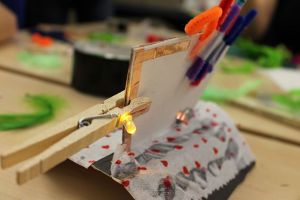 |
Designing a system to provide real-time feedback on Nurse's compliance in the use of personal protective equipment when entering a patient's room in the intensive care unit. |
Researchers in ubiquitous computing fields have assumed that smartphone owners consistently use, carry, or have access to their phones throughout the day. Current applications in fields such as mHealth believe that the smartphone is a promising and reliable sensing platform to understand user behaviors and environment. However, as wearable technology (e.g., smartwatches) has become more widely adopted, the changed technology landscape has impacted users' proximity to their smartphone. By introducing new research techniques, we investigate the current users' proximity to their smartphone. 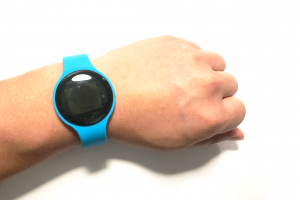 Website: |
Psi and Delta is a collaborative classroom videogame that enables students to experience the world of the very small, together. 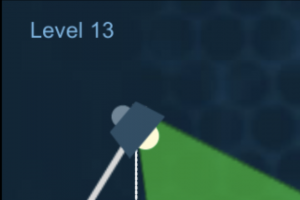 Website: |
|
This ongoing study investigates the effect that proximate criminal activity has on emotional expression in social media. Proximity to crime and well constant fear of crime can have great negative psychological effects on individuals. Social media currently being one of the most popular means of publicly expressing personal opinions and emotions, we expect to find an effect of temporal and spatial proximity to crime on social media mood expression and other patters of online communication. |
The Pueblo Connect project is focused on investigating methods for measuring cellular connectivity in rural areas and, more broadly, increasing access to the internet in rural and indigenous communities.  Website: |
When pets are adopted or rehomed, both pet owners and pets have to undergo an adjustment phase. Pet owners without experience might find this phase difficult and overwhelming. Our research investigates how we might create a pet-centric solution to support the pet adoption and adjustment phase and alleviate stress for pet owners and pets during the adoption process. |
PUNGA (Provenance-supported Undirected Node Graph Analytics) is a tool for intelligence analysts. PUNGA assists analysts in making sense of a large textual-based dataset by supporting data processing (Named Entity Recognition), data cleaning, data analysis, and analytic provencance. PUNGA provides users the ability to combine, format, clean the data as per their convenience before and during analysis with the Entity View. PUNGA also facilitates user interaction with the data sets in a number of linked views. 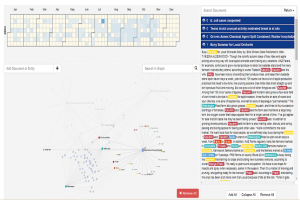 Website: |
|
Visual analytics (VA) systems with semantic interaction help users craft machine learning (ML) based solutions in various domains such as bio-informatics, finance, sports, etc. However current semantic interaction based approaches are data and task-specific which might not generalize across different problem scenarios. In this project, we describe a novel technique of abstracting user intents and goals in the form of an interactive objective function which can guide any auto-ML based model optimizer (such as Hyperopt, Sigopt, etc.) to construct classification models catering to the expectation 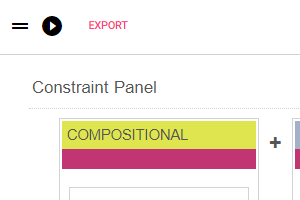 |
Videos are great tools for teaching, learning, and communication; however, because video editing is time-consuming and tedious there are few people who take on the task. Utilizing the advances that have been made in video editing tools and algorithms we could help to ease this burden. Quick-Cut is a video editing tool focused on narration videos. It attempts to cut down the time it takes to edit videos together, while still producing a quality final cut. |
We will be showcasing a variety of projects that highlight our applied research and development at the intersections of wearable computing, machine learning, smart textiles, internet of things, virtual/augmented reality, health and wellness, games with a purpose, educational technologies, assistive technology, the future of work, the smart city and smart home, and the arts. Website: |
Diagnostic radiology reports are increasingly being made available to patients and their family members. However, these reports are not typically comprehensible to lay, recipients, impeding effective communication about report findings. Rapport is a prototype system that aims to facilitate communication about radiology imaging findings among pediatric patients, their family members and clinicians in the clinical setting. 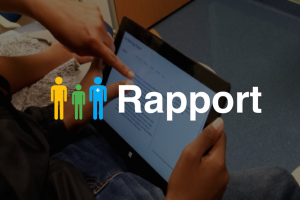 Website: |
|
The Pervasive Games Group of the {egg} presents their new design of the big urban game Re:Activism, originally developed by the PETLab at Parsons The New School. This modular design of Re:Activism gives players a condensed experience of activist history in Atlanta. Players travel around to downtown sites that are tied to historical moments of activism and complete challenges related to those events.  |
With the increasing presence of censorship on Chinese social media, it is imperative to provide the users of platforms such as Sina Weibo a way to freely share information without alerting the censors and systems of surveillance on social media. The aim of this project is to implement a Real-Time Keyword Aggregator that collects keywords that have most likely resulted in censorship of posts from various publicly available archives of censored sina weibo posts. |
The streetcars run in the heart of downtown. They are subject to unstable operating conditions caused by traffic congestion, basketball games, and obstructed right-of-way. These perturbations make the Atlanta Streetcar prone to streetcar-bunching, which causes undue passenger wait and crowding. We have developped a real-time dispatching method that considers every streetcar on the route to dispatch them with even headways, while maintaining a high frequency of service. |


